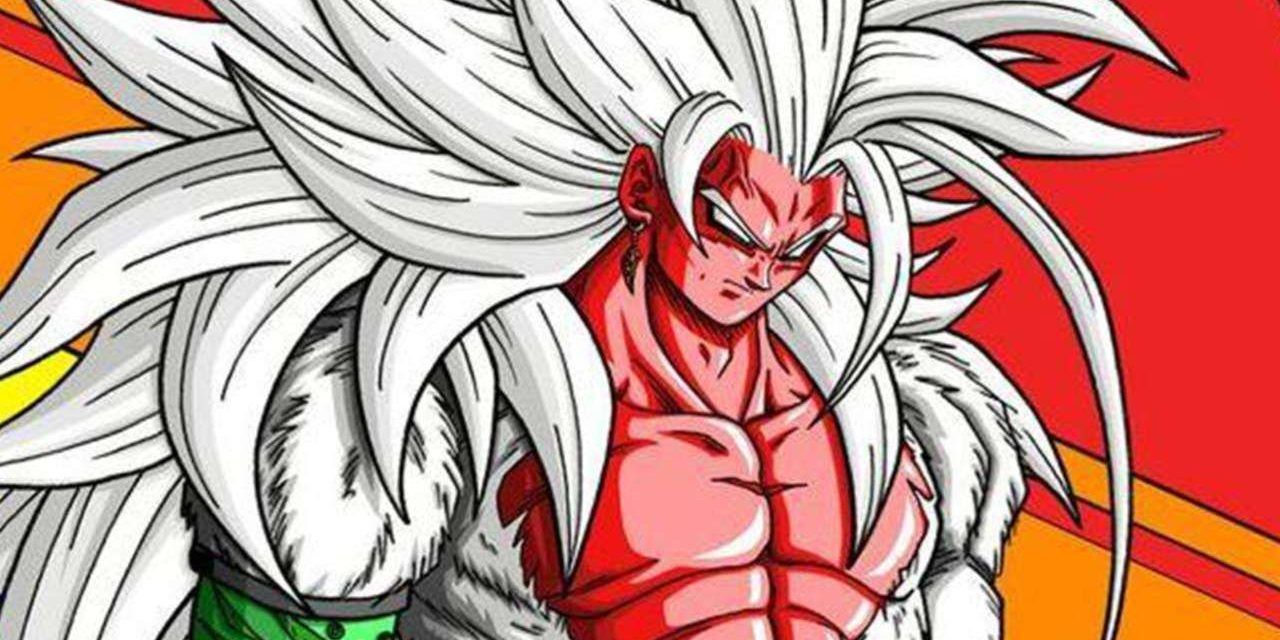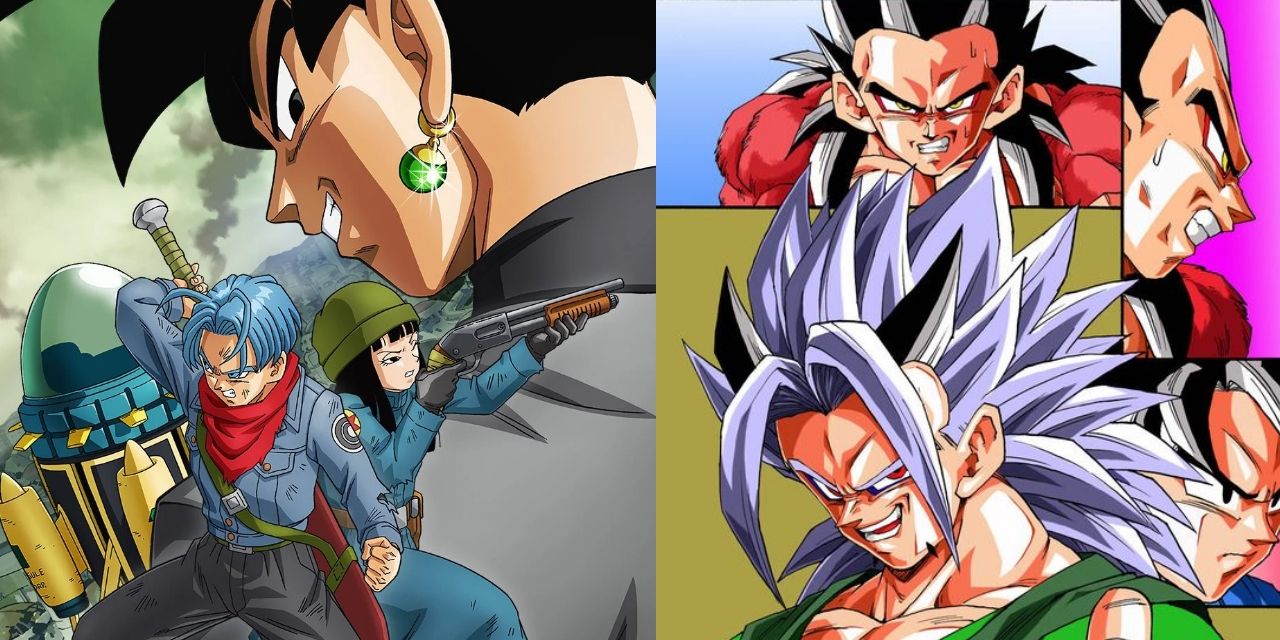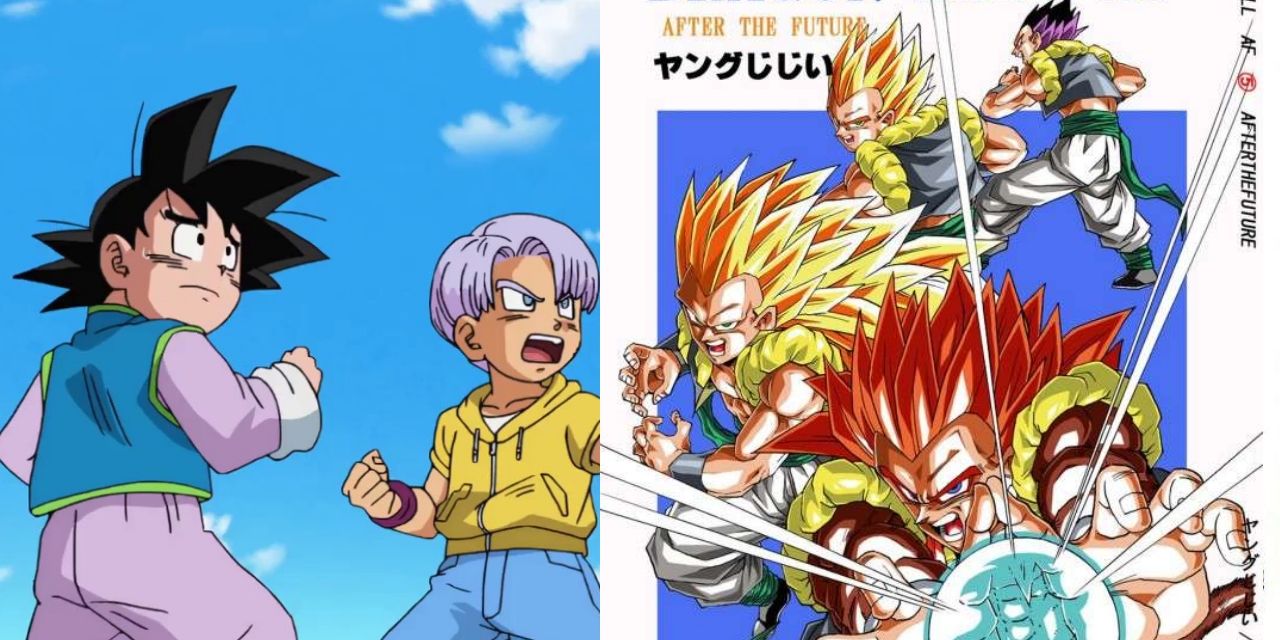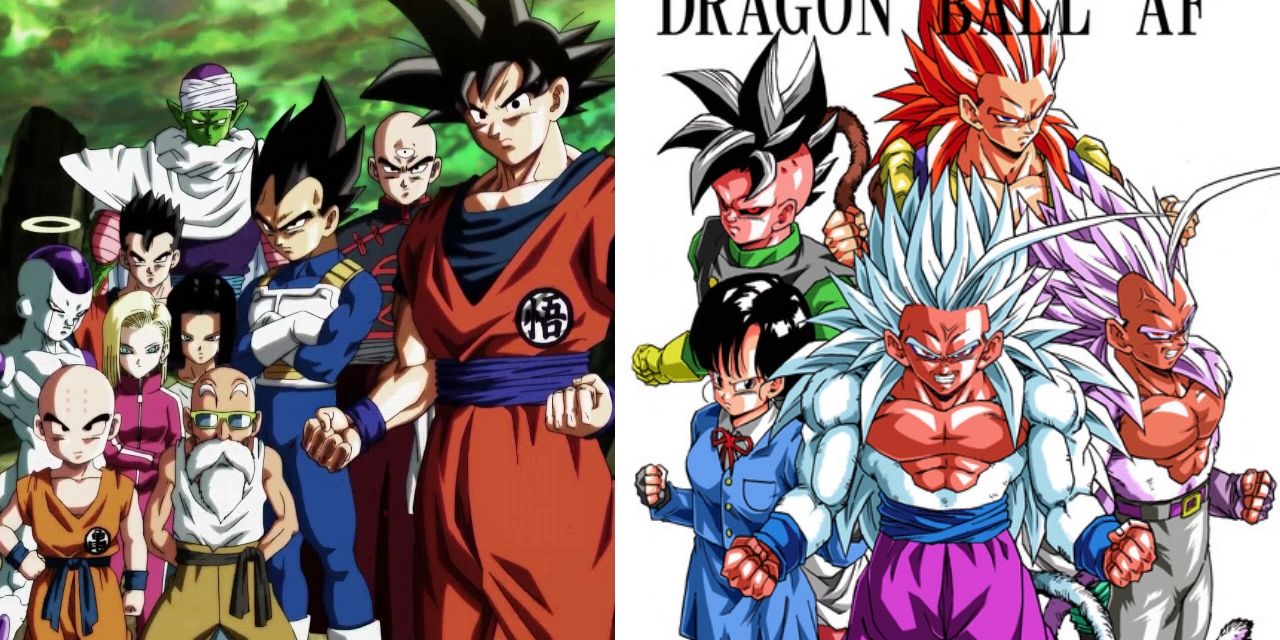If you grew up in the era of GameFAQs forums, the Anime Web Turnpike and Gaia Online, then you probably heard of Dragon Ball AF, that sequel to Dragon Ball Z and Dragon Ball GT that totally existed but just hadn't been brought over to America yet. Anyone falling for the rumor that Dragon Ball AF was real should have noticed the distinct lack of Japanese screenshots, reviews, or forum comments. There was no proof Dragon Ball AF existed other than vague episode guides and the iconic Super Saiyan 5 fan-art.
Nowadays, everyone knows Dragon Ball AF doesn't exist. But why did people want it to exist? What plot points and key events occurred in the rumored series to draw people in? And, more importantly, did Dragon Ball Super ever draw from these wild ideas? To find out, we need to dig into every pre-teen Dragon Ball Z fan's internet history folder and look at the sources for the rumors they spread.
The Plot
Dragon Ball AF doesn't have one singular plot. As an internet urban legend, every new fan who contributes to the lore surrounding Dragon Ball AF will add their own two cents to the story. While there's a lot of fan-art for the would-be sequel, an actual plot for Dragon Ball AF wouldn't come to exist until the two big Dragon Ball AF fan-comics were written.
The plot of Toyble's Dragon Ball AF is that Goku's seed is stolen by a female Kaioshin, which she uses to impregnate herself and create Goku's illegitimate son, officially named Zaiko but going by the name Xicor. Xicor is superior in power to both Super Saiyan 4 Vegeta and Super Saiyan 4 Gohan, which leaves only Goku, now seeking the power of Super Saiyan 5, to find the strength within him to defeat this half-Kaioshin/half-Saiyan adversary. Ironically, Xicor and his evil Kaioshin mother bare a few resemblances to Goku Black and Zamasu in Dragon Ball Super.
Then there's YoungJiji's Dragon Ball AF, which has been running since 2011, comprising a staggering 19 volumes. In this story, Dragon Ball AF can be broken down into multiple arcs. First, Frieza's son Ize shows up. Then, two demons, Chiyoko and Marble, emerge from Hell to wreak havoc in the aftermath of Dabura's death. The demon's actions lead to the Dragon Balls, sealed up following GT, to descend to Earth, creating new Shadow Dragons. Finally, a new enemy named Spoitz shows up. This in many ways sounds remarkably similar to what Dragon Ball Xenoverse and Super Dragon Ball Heroes would do, with absurd new iterations of established races and characters showing up to wreak havoc.
Characters Returning to Prominence
Still, Dragon Ball AF for years didn't have a plot. Rather, the series existed mostly as fan-art of characters looking cooler than ever. Ergo, when examining what Dragon Ball AF could have been, it's vital to see what character fan-art exists and if these ideas look cool. YoungJiji's Dragon Ball AF introduced Shadow Dragons or Demons -- underutilized antagonists that the fans would like to see more of.
Another element of Dragon Ball AF that some fans were eager to see was the rise of side characters in prominent roles, like Tien, Gohan, Uub, Goten and Trunks. A lot of fan-art features Pan either grown-up or taking a more active role in the narrative. Some art depicted Pan as a young teen, while others portrayed her as a young woman. Given the ending of Dragon Ball GT, with the characters resolving to make the world safe without relying on the Dragon Balls, this makes the most sense. It's less logical to see Goku as a Super Saiyan 5 in a post-GT world, given how GT ends.
One of the most widely spread pieces of Dragon Ball AF fan-art shows King Vegeta returning. It's unclear if it's just Vegeta accepting his role as King of the Saiyans or if it's the resurrected King of Planet Vegeta. Both options make little sense, but King Vegeta's resurrection seems particularly pointless. King Vegeta is far too weak to stand up against AF's cast. The only value would be to see how the King reacts to modern Saiyan life, which, while amusing, would only retread plot points introduced in the Saiyan Saga when Raditz found Goku domesticated on Earth.
The Transformations
The most memorable element of Dragon Ball AF is the transformations. After the now-iconic piece of fan-art featuring Super Saiyan 5, everyone started adding new transformations to established characters: Gohan as a Super Saiyan 4, Pan as a Super Saiyan, Goku achieving Super Saiyan 5, 6 and 10.
Established characters taking on new forms is pretty logical, especially Pan's transformations. One underrated new form is Uub's new transformation. Young Jiji's iteration of Uub becomes Super Uub, a more Majin Buu-esque form following his fusion with Majin Buu during Dragon Ball GT.
While it's hard to discuss the marble-furred Super Saiyan 10 in any coherent fashion, it continues the trend of Super Saiyan 4 by making advanced Super Saiyan transformations increasingly ape-like. However, Super Saiyan 5 has taken on a life of its own. The fan-art, featuring Super Saiyan 4's red body fur turning pewter, Super Saiyan 3-length hair and darkened skin, is distinct.
Unlike Super Saiyan God, Super Saiyan Blue and Ultra Instinct forms from Dragon Ball Super, Super Saiyan 5 looks absurd -- and that's great. Dragon Ball Super trailed back the bizarre nature of Dragon Ball GT's Super Saiyan 4 with its new forms. AF's absurd transformations, however, fit with where the Dragon Ball saga was going at the time. In an ideal world, Super Saiyan 5 should find some love. For now, it's just too insane to be real.




